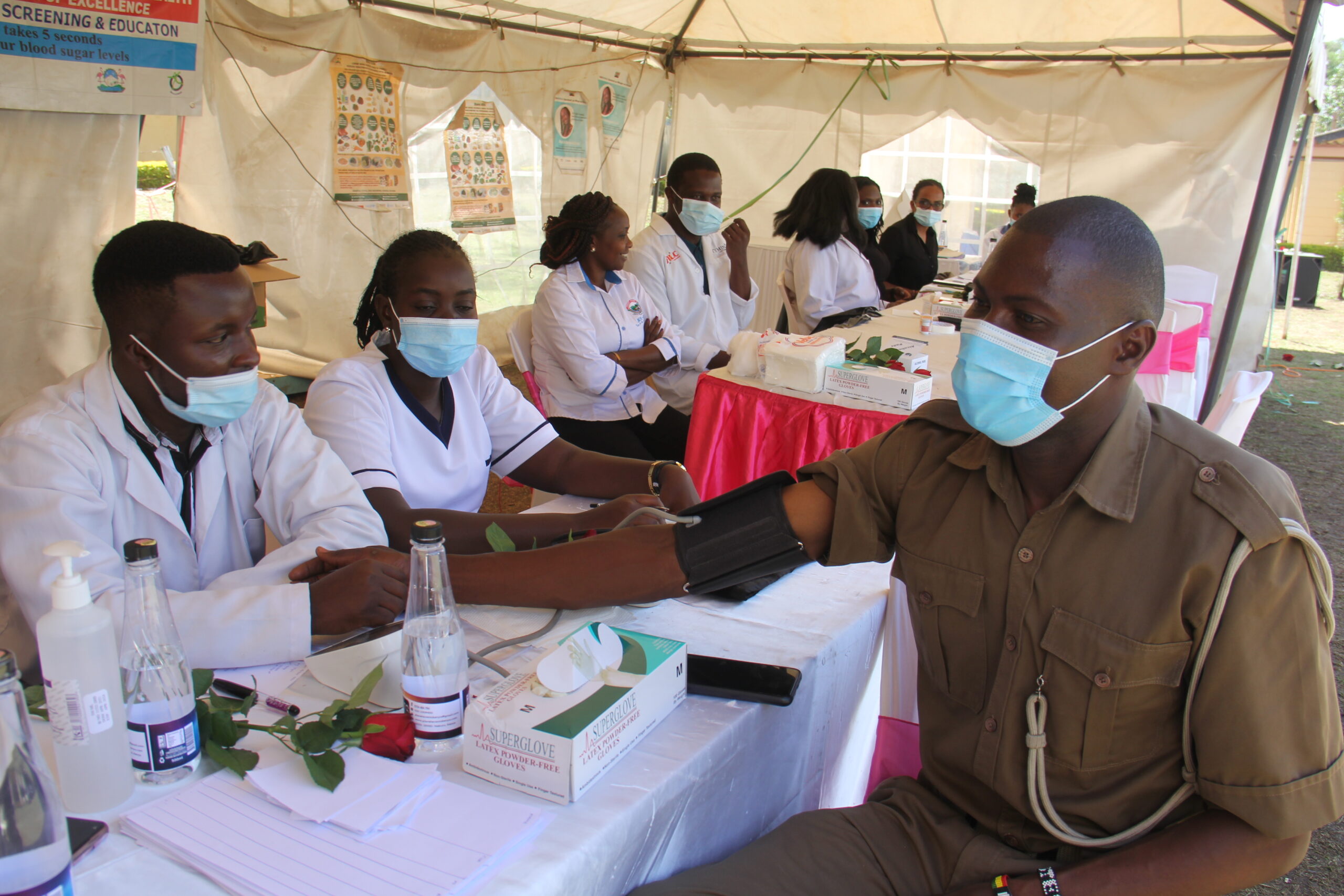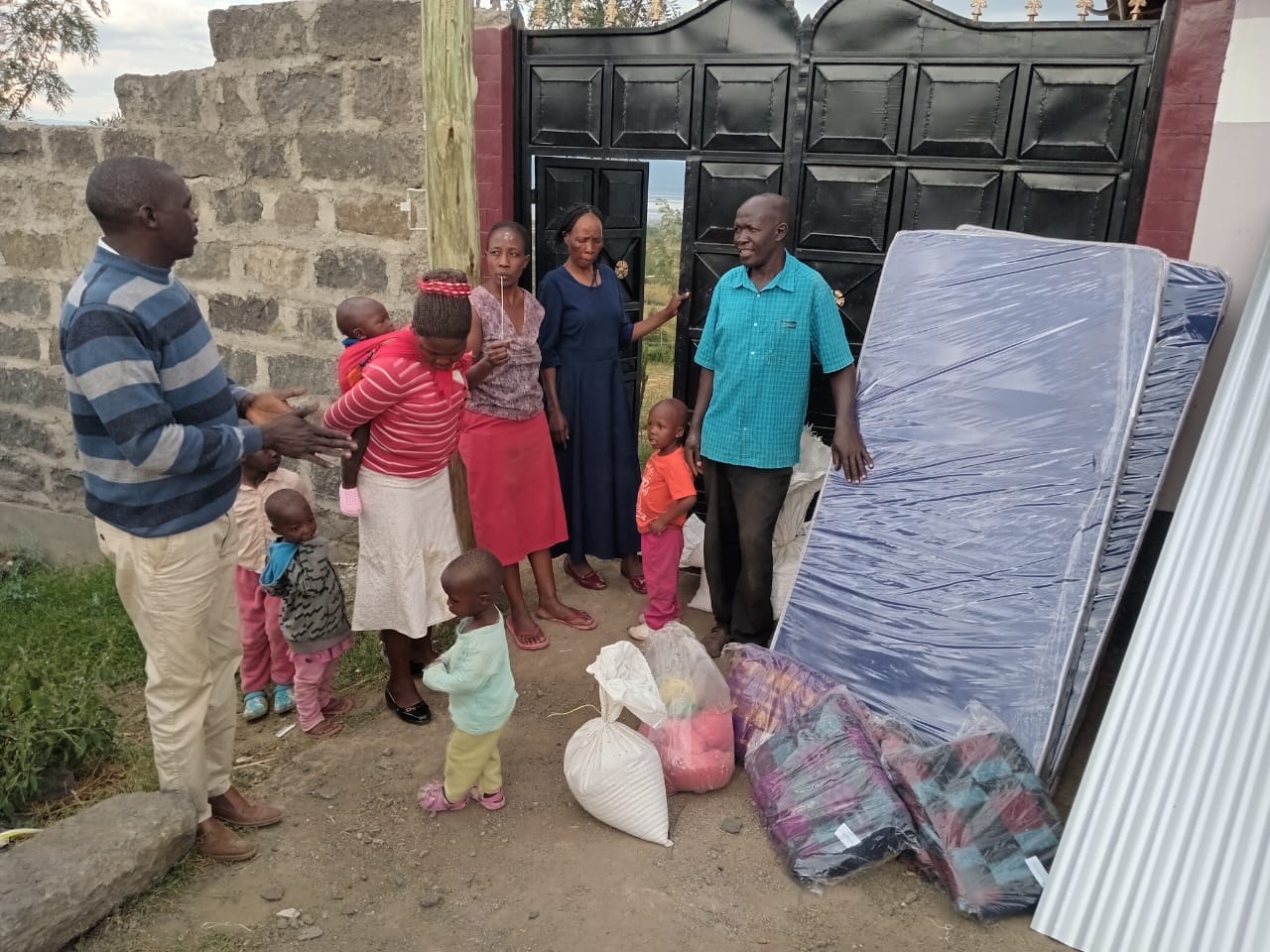County Governments should come up with measures to offer psychiatric support to health workers who are facing mental health challenges.
Chief Nursing Officer at Nakuru Level 5 Teaching and Referral Hospital Ms. Wendi Tirop said life-threatening situations posed by the Covid-19 pandemic and the physical strain of working long hours had made health workers, particularly nurses, feel anxious and hopeless.
Ms. Tirop expressed concern that a growing number of health workers had resorted to drug and substance abuse as a way of coping with the daily stress of their job, or to self-medicate for depression, anxiety or post-traumatic stress disorder.
“When Covid-19 scourge broke out, health workers encountered situations that exposed them to a higher risk of mental illness. They watched patients succumb to the pandemic and were during the period traumatized on witnessing some of their colleagues lose lives to Covid-19 disease,” She said.
The exposure to tragic events by health workers, the Chief Nursing Officer noted, causes multiple mental health issues, which escalate to post-traumatic stress disorder (PTSD) and depression.
She added: “The immediate causes of suicides among health workers – such as love triangles, sour relationships, broken families and substance abuse – are just triggers rather than the root causes.”
Speaking at the referral facility during celebrations to mark World Nurses Day, Ms. Tirop called on devolved units to invest in mental wellness centers that were friendly to healthcare providers and to create an environment that allows workers of all cadres to freely share their personal problems and challenges at the workplace.
“Mental health issues such as depression, stress, burnout, anxiety disorders, substance abuse, attention deficit hyperactivity, schizophrenia and bipolar disorder among others are a silent pandemic afflicting health workers in large proportions that no one wants to talk about. The disorders are triggered by both work-related and social issues,” the Chief Nursing Officer stated.
Ms. Tirop who was flanked by the Teaching and Referral Hospital’s Medical Superintendent Dr. Aisha Maina, suggested that once a mental health issue is detected or suspected among health workers, supervisors should act immediately bearing in mind that this is neither a discipline nor a human resource issue.
While acknowledging that mental health is a serious predicament in the country, Ms. Tirop encouraged health workers to consult their superiors, peers, and family members when faced with difficult times, adding that their issues could be addressed.
To create a healthy workspace, Ms. Tirop advised supervisors to understand the unique opportunities and needs of individual health workers and interventions and good practices that protect and promote mental health in the workplace.
She said the referral hospital’s administration had opened up channels of communication among all cadres of health workers as part of ways of detecting any form of stress among them and was always keen to detect any trigger that may lead to depression, stress or mental illness and act immediately.
“Supervisors should check on triggers and act immediately. Bring him or her to the hospital or allow him or her to seek medical services. Triggers may be tough assignments, financial issues, marriage wrangles, transfers, working far from friends and exposure to stresses,” the Chief Nursing Officer pointed out.
She warned that putting mental health on the back burner of nurses’ welfare means an increase in reported violent crimes, homicides, suicides, gender-based and sexual violence.
“Sometimes it is difficult to know but it’s important to keep track of changes in one’s thoughts, feelings and behaviour. Observations with regard to changes in the personality of junior staff should be taken seriously by their superiors,” Ms. Tirop stated.
Dr Maina described health workers as heroes who risked their lives to save and protect lives and who the country could not afford to watch as they sink into depression.
The medical superintendent said the provision of health care services was not a walk in the park, especially in the modern society where health workers battle family pressure, societal expectations and new and emerging diseases daily.
“We are promoting self-awareness and the creation of social support systems to help health workers deal with the challenges. Mental health challenges are common even among health care service providers but help is available,” she added.
With 477 nurses in its employment, Dr. Maina said Nakuru County should channel more resources towards further training and building the capacity of the cadre as it constituted the core of the devolved unit’s healthcare system.


